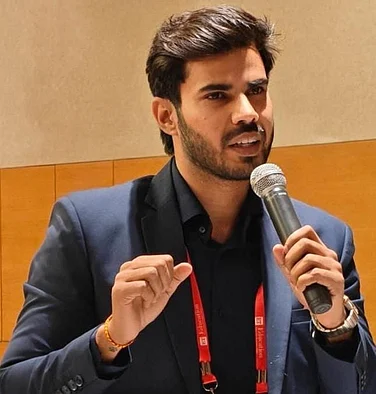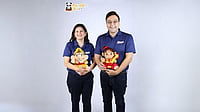Venkata Sri Manoj Bonam works as a researcher who creates healthcare solutions by applying data science knowledge in the current digital environment. The IEEE Proceedings from the 2024 Asian Conference on Intelligent Technologies (ACOIT) published his innovative work on IoT-based healthcare frameworks, which shows how intelligent systems improve worldwide patient tracking and medical choices.
His research activities focus on creating healthcare systems which predict medical requirements to provide individualized care for all patients. Venkata Sri Manoj uses his knowledge of data engineering, cloud analytics, and machine learning to create systems which convert real-time health data into useful information. His vision demonstrates both technological superiority and his commitment to enhance the standard of living for millions of people across the globe.
Integrating Medical Knowledge with Data Science
Through his work, he created a fundamental base which merged medical knowledge with data analysis. Venkata Sri Manoj conducts research to create IoT-based healthcare systems which track patients through wearable sensors and real-time analytics for continuous remote monitoring. His system operates as an academic framework instead of a commercial product to demonstrate how technology can be designed to assist clinical teams effectively.
The system enables secure data transfer between smart wearables and medical sensors and cloud-based environments through Bluetooth and Wi-Fi connectivity according to his design. The system depends on AI algorithms to process data for pattern detection and abnormal behavior identification, which generates medical alerts for staff members. The system he designed provides a reliable framework for data acquisition and transmission which maintains stored information for healthcare professionals to access critical data at any time.
His model operates with two main components which focus on trust and transparency. Venkata Sri Manoj utilizes support vector machines (SVMs) and neural networks to learn each patient’s personal health baseline. The system uses parallel exponential smoothing methods to predict short-term vital sign changes which results in precise and clear predictions. The framework delivers reliable operation during long-term use and offers straightforward explanations which medical staff need for their daily work in precise and trustworthy clinical environments.
The system demonstrated better performance than current methods during laboratory testing:
15% higher monitoring accuracy, improving anomaly detection.
30% reduction in false alarms, resulting in lower alert fatigue for medical personnel.
25-millisecond faster response time, enabling medical teams to respond instantly.
20% rise in patient satisfaction, due to an easy-to-use interface and personalized features.
The research demonstrates that data-driven design methods which follow ethical guidelines produce significant enhancements for patient care when implemented correctly.
Engineering for Impact
Engineering for Impact serves as a method that goes further than creating new technologies. What makes Venkata Sri Manoj’s work distinct is his understanding that healthcare innovation must serve society as much as it serves science. His research offers a cost-efficient solution for ongoing patient care through a model that can be implemented across the United States, where chronic diseases impact 133 million people and healthcare spending reaches $4 trillion each year.
The system allows remote patient tracking and early warning detection, which enables clinicians to stop hospital readmissions while reducing the burden on facilities that face excessive patient volumes. The test environments showed a 15% decrease in total healthcare expenses, confirming that the system reduces medical resource usage without impacting treatment results.
The technological progress will transform digital health infrastructure through its economic benefits which enable insurers, hospitals, and technology partners to establish proactive care systems. The U.S. healthcare system will experience reduced emergency care needs while patients receive more preventive care and workers maintain better productivity because chronic patients remain healthy for longer periods.
His influence reaches past the borders of his home country. Venkata Sri Manoj demonstrates through his model that affordable IoT solutions enable developing countries to monitor patients through low-cost sensors and mobile network connections despite their restricted healthcare access. Real-time analytics enables the detection of chronic diseases including diabetes, hypertension, and cardiovascular disorders, which cause millions of worldwide fatalities. Predictive and preventive healthcare methods will protect lives while strengthening healthcare systems against global health threats.
Championing Ethical and Sustainable Innovation
Venkata Sri Manoj’s contributions also highlight a critical dimension of modern research — responsible AI. He stresses that healthcare applications require ethical data governance systems and privacy protection measures and algorithms which function with transparency. He applies explainable AI (XAI) principles to create a prediction system which healthcare professionals can understand and trust instead of using uninterpretable models.
Medical professionals need to follow ethical principles as their base requirement to work in actual clinical environments. The method provides healthcare providers and patients with reassurance because it demonstrates that technology operates safely and fairly while preserving human dignity in our data-driven world. The system he developed enables environmental sustainability because it reduces hospital visits and medical travel-related carbon emissions which makes remote healthcare delivery more advantageous.
Venkata Sri Manoj demonstrates that technological advancement requires both innovation and responsibility to safeguard fundamental values of transparency and trust.
Global Relevance and Long-Term Vision
The growing number of elderly people and increasing healthcare requirements have motivated Venkata Sri Manoj and other researchers to establish digital health frontiers. His work unites data engineering with artificial intelligence and biomedical research to create the basis for future healthcare systems.
Through his work he established a framework which serves as a model for developing remote care systems that can handle patients across rural areas, urban settings, and emergency situations. The system's modular structure enables its application for pandemic surveillance, elderly home care, and post-surgical rehabilitation, which adds value to global public health systems.
He promotes worldwide research partnerships and open innovation practices through his IEEE peer-reviewed publication. His research shows policymakers, healthcare providers, and technology leaders how remote healthcare can become a permanent part of standard medical practice.
The Human Element of Innovation
Despite the technical depth of his work, what defines Venkata Sri Manoj most is his focus on the human side of technology. His work goes past algorithmic systems because he creates tools to enhance medical staff operational efficiency.
Reflecting on his mission, he remarks, “IoT has the capability of revolutionizing healthcare through early identification of risky conditions and timely medical treatments.” His philosophy is reflected in this statement because he believes technology exists to help people rather than replace their care.
Venkata Sri Manoj will develop intelligent healthcare systems with ethical and inclusive methods to become a future healthcare leader. His work demonstrates how data science with purposeful direction enables medical progress through empathetic approaches.






















